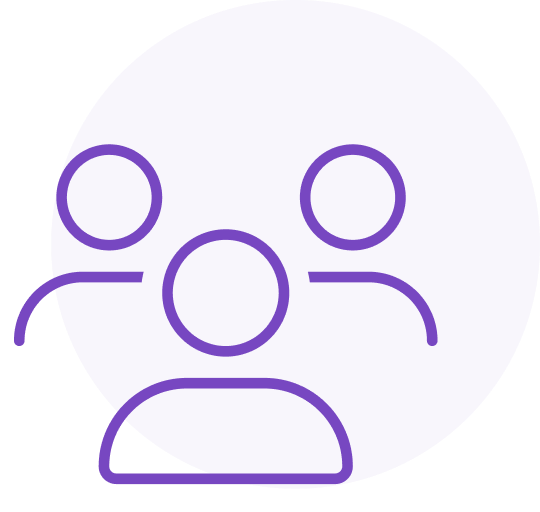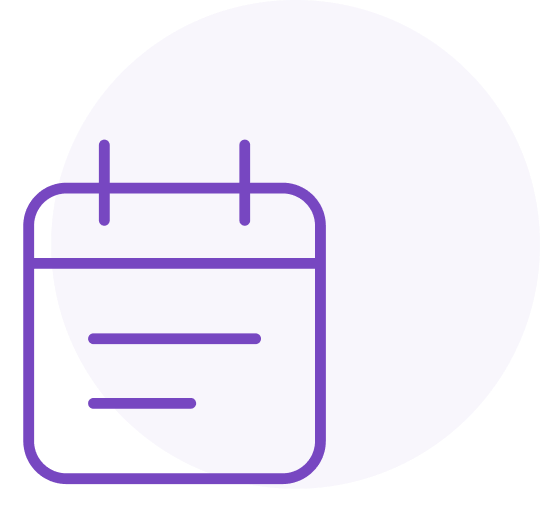This certificate provides an opportunity to practice the basic competencies and ensures their acquisition in eLearning quality assurance. It also enables obtaining the Professional Certificate in eLearning Quality Assurance – Advanced Level.
Requirements:
How to obtain the certificate:
- Create an account on the Professional Certificates website.
- Upload the required documents, which must be valid, updated, and clear.
- Complete the training for the Professional Certificate in eLearning Quality Assurance – Foundation Level from one of the recommended institutions on the National eLearning Center’s website.
- Practice eLearning quality assurance equivalent to 30 credits at government, private sector, or nonprofit institutions.
- Upload evidence of practicing eLearning quality assurance equivalent to 30 hours on the Professional Certificates website.
- Pay the fees.
Target Audience
- eLearning quality assurance specialists.
- Arbitrators and evaluators of eLearning programs.
- Educational supervisors and school principals.
Fees
500 SR
Certificate Validity
One year starting from the date of issuance.
Competencies:
Training is conducted according to specific competencies that the applicant acquires after being trained and qualified by one of the training institutions accredited by NeLC.
6
Domains
19
Competencies
59
Indicators
1.1 Digital Tools and Applications
1.1.a: Awareness of the importance of assessing the team's capabilities in developing and using digital tools and applications inside and outside the eLearning platform to continuously improve their performance.
1.1.b: Understand the need to identify continuous training needs for the team and apply the training program to improve their use of eLearning applications.
1.1.c: Awareness of the importance of creating an eLearning environment focused on innovation and supporting active exploration of digital and emerging tools.
1.1.d: Understand the need to apply reliability and ease of use tests to detect errors in the eLearning system, platform, and processes, including providing initial support and reporting to technical support staff on issues.
1.2 Digital Citizenship
1.2.a: Awareness of the importance of innovating appropriate practices and behaviors taking into account professional, legal, security, and ethical standards in the digital learning environment for users to apply, learn, and follow.
1.2.b: Implement an official technical plan to manage and protect data effectively, ensure fairness in data access and utilization, utilize technical infrastructure, protection means, digital security, ensure continuity and future expansion, and evaluate it.
1.2.c: Importance of applying ethical aspects in the eLearning environment while implementing academic programs to ensure the reliability of the eLearning program.
1.3 Digital Resources
1.3.a: Importance of explaining supportive and enhancing methods for appropriate educational practices using diverse digital educational resources.
1.3.b: Evaluate suitable electronic educational materials that support the quality of the eLearning program, taking into account quality standards, assessing and securing them to support eLearning programs.
2.1 Data and Analytics
2.1.A: Encourage and empower educators/faculty/instructors to use data for educational/training planning, learning, and assessment to continuously improve their performance.
2.1.B: Apply international standards to support educational decision-making to enhance the eLearning program, and infrastructure requirements, in line with its goals and mission.
2.1.C: Evaluate the effectiveness of the eLearning program by analyzing learners' academic achievement, their interactions in eLearning environments, their tests, and the results of other performance metrics.
2.2 Planning
2.2.A: Awareness and planning for the implementation of policies in the form of guidelines for learners, their execution, assessment, including individuals with disabilities, and raising awareness among learners of the available services.
2.2.B: Develop policies and processes that are continuously updated, managed, and reviewed, including approved regulations that cover all stages of the learner's journey (admission, progress level, accreditation, and certification).
2.2.C: Develop quality systems taking into account theoretical and technical variables and conducting periodic reviews to improve the policy, system, and procedures of eLearning programs.
2.2.D: Apply, evaluate, and improve approved policies to support the institutional effectiveness of eLearning programs and identify program assessment procedures taking into account policies.
2.2.E: Build enhanced practices for trust among individuals participating in the eLearning system inside and outside the institution, including legal, ethical, and professional behavior.
2.2.F: Assess the roles and responsibilities of all eLearning staff, monitor, and update them.
2.2.G: Innovate new practices that increase enrolment in the program and combat dropout rates.
2.2.H: Develop plans for the improvement, evaluation, and updating of quality assurance policies and disseminating them, taking into account the feedback and needs of the beneficiaries.
2.2.I: Apply budget management rules in accordance with approved regulations, taking into account clear methodological procedures including the link to financial data and periodic reviews.
2.2.J: Develop curriculum development plans and mechanisms to ensure their sustainability taking into account the budget and the institution's available resources and needs analysis results.
2.2.K: Evaluate educational effectiveness, resource needs, academic strengths, and institutional eLearning program priorities, and analyze opportunities for expanding eLearning program delivery within the institution.
2.2.L: Analyze eLearning training requirements and planning training programs' sustainability taking into account those requirements and global quality standards.
2.2.M: Evaluate rules and regulations and comply with them in terms of their relevance to various sources of funding for the eLearning program, such as financial aid, grants, contracts, tuition fees, and wages.
3.1 eLearning Design
3.1.A: Skill in leveraging professional learning communities (PLCs) to support the educators' growth in and knowledge pursuit of evidence-based online teaching practice.
3.1.B: Identify appropriate services to address students’ emotional and social needs as well as academic needs based on quality standards.
3.2 Synchronous and Asynchronous Teaching/Training and Learning
3.2.A: Ensure the eLearning program budgets and plans for continuous updates to their high-quality synchronous and asynchronous teaching and learning environment.
3.2.B: Assess, modify, and ensure the high quality of both the asynchronous and synchronous learning environment.
3.3 Engagement and Motivation
3.3.A: Assess eLearning programs that provide multiple opportunities for learner interaction that support active learning and authentic problem-solving.
3.3.B: Skill in defining and celebrating high expectations for learners, teachers, and staff and innovating initiatives to support the realization of these expectations.
3.4 Inclusion and Extension
3.4.A: Support teachers to advance learning that meets the diverse learning, social-emotional, and cultural needs of all learners.
3.4.B: Ensure all learners have appropriate access to technology and resources to participate in the eLearning programs.
3.4.C: Apply the principles of equity and inclusion to all aspects of the eLearning programs.
3.4.D: Build, regulate, and assess the eLearning program to ensure all learners have equivalent opportunities to achieve the same learning outcomes as regular-mode learners.
4.1 Assignments
4.1.A: Assess an eLearning program that offers learners a variety of personalized and authentic learning activities.
4.2 Examinations
4.2.A: Build, monitor, and assess the regulations for assessments that consider mitigating circumstances and examinations that are fairly and consistently applied to all learners.
4.3 Learning Outcomes
4.3.A: Evaluate learning outcomes based on internal and benchmark assessments to improve and guide decisions for instructional revisions.
4.3.B: Ensure the eLearning program defines expected outcomes for student learning and performance in terms of knowledge, understanding, attitudes, skills, and habits to be demonstrated.
4.4 Educators
4.4.A: Conduct effective evaluations of educators, offering feedback for their professional growth, and establishing expectations for their annual professional development goals.
4.4.B: Awareness of the value in building and assessing fair and transparent processes for the recruitment and development of all eLearning program teaching/training and support staff.
4.4.C: Skill in establishing high expectations for the institution's success in teaching/training online.
4.4.D: Evaluate and assess trainers and employees to ensure the quality of the eLearning training program and adherence to local policy.
4.5 Courses
4.5.A: Review, evaluate, and assess existing online courses for quality, including meeting the learning objectives, achievement of learning outcomes, and satisfaction of stakeholders.
4.6 Programs
4.6.A: Meet the eLearning program’s operational and strategic goals that align with its mission.
4.6.B: Allocate resources to plan and secure external quality assurance evaluations on a cyclical basis that takes into account the legislative framework in which the eLearning program operates.
4.6.C: Build, monitor, and assess the eLearning training program to ensure its alignment with postsecondary educational requirements and workplace demands to help prepare the trainees for their future.
4.6.D: Ensure robust and measurable processes are in place to assess all eLearning programs across the institution for academic credibility, relevance, and currency and attend to the diversity of all learners.
5.1 Learners, Staff, and Stakeholders
5.1.A: Engage all stakeholders to communicate a vision of online learning consistent with the overall eLearning program’s mission and goals.
5.1.B: Skill in partnering with leadership to ensure the eLearning program has appropriate resources to evaluate, maintain, grow, assess, and receive the support needed to continuously improve.
5.1.C: Organize, present, and assess course offerings in a way that learners, parents, and relevant stakeholders may access and navigate easily.
5.1.D: Gather data and information between the eLearning program, leadership, and other regulatory offices.
6.1 Reflection
6.1.A: Skill in identifying personal and professional opportunities for growth in online learning leadership or quality assurance.
6.1.B: Gather feedback from students, faculty, and internal and external stakeholders to continuously improve the eLearning programs and/or quality assurance systems.
6.1.C: Assess and manage one’s emotional state, identify personal biases, and learn how to make consensus-based, democratic, and autocratic decisions based on situations.
6.2 Time Management
6.2.A: Skill in adopting and modeling efficient, practical, and realistic processes and timelines to effectively manage key workflow operations such as staff evaluations, budgeting, operational and strategic planning, program assessments, and quality assurance review in accordance with the appropriate short and long-term due dates.
6.3 Lifelong Learning
6.3.A: Skill in staying well informed of and implementing proven practices identified in educational research and literature.
6.3.B: Deploy and sustain annual programs of job embedded professional development based on the needs of the school and staff identified in the school’s growth and improvement process.
6.4.C: Skill in sharpening their technical knowledge and skills to remain current with relevant technologies, standards, and industry trends by working with business professionals, pursuing additional certifications, and engaging in training.



